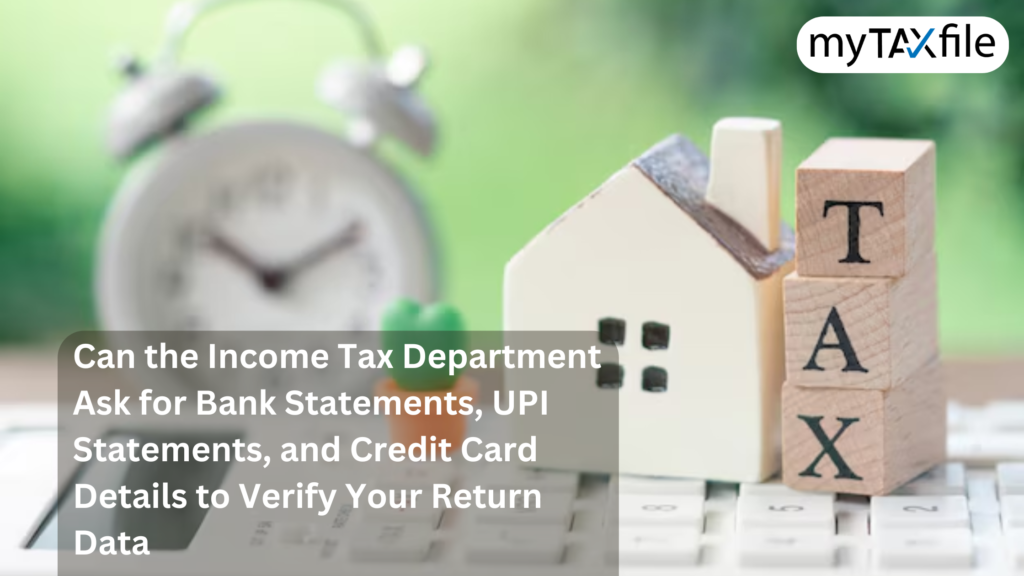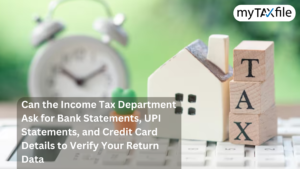Understanding Verification Powers Under Clause 263 of the New Income Tax Bill 2025 vs. the Old Income Tax Act 1961
The Income Tax Department has always been vigilant in ensuring that taxpayers comply with the law. With the introduction of the Income Tax Bill 2025, replacing the six-decade-old Income Tax Act 1961, the department has further streamlined its processes to enhance transparency and reduce tax evasion. One of the most talked-about provisions is Clause 263, which governs the filing of income tax returns and the verification of return data. But can the department ask for your bank statements, UPI transaction details, or credit card statements to verify your return data? Let’s dive deep into this topic, compare the old and new laws, and answer some frequently asked questions.
Understanding Clause 263 of the Income Tax Bill 2025
A Digital Transformation in Return Filing
Clause 263 of the Income Tax Bill 2025 outlines the provisions related to the filing of income tax returns. It mandates that certain individuals and entities must file their returns within the prescribed due dates. The clause also empowers the Income Tax Department to request additional documents, including bank statements, UPI transaction details, and credit card statements, to verify the accuracy of the return data.
Under Clause 263, if discrepancies or inconsistencies are detected in your return data, the department has the authority to request supporting documents. These may include:
- Bank Statements: To verify the inflow and outflow of funds and ensure consistency with declared income.
- UPI Statements: Given the rapid adoption of digital payments, UPI statements serve as crucial evidence of transactions.
- Credit Card Records: These help in tracking expenditure patterns and validating declared expenses.
- Other Relevant Documents: Any additional records that can substantiate the information declared in your return.
This proactive verification is part of a broader initiative to improve accuracy, reduce tax evasion, and simplify the audit process through automation and real-time monitoring
Enhanced Transparency and Accountability
One of the key objectives of Clause 263 is to bring transparency into the process. The department’s right to request these documents is not arbitrary; it is a structured measure aimed at ensuring that the data provided by taxpayers is accurate and complete. With an integrated system that tracks all submissions in real time, any request for additional documentation is both justified and traceable.
The digital nature of the process also means that taxpayers receive timely notifications about any discrepancies. This faceless assessment not only minimizes human biases but also speeds up the overall resolution process. The modernized approach enhances accountability on both sides—the taxpayer and the tax authorities—creating a more robust and efficient system.
Comparison: Income Tax Act 1961 vs. Income Tax Bill 2025
Scope of Verification
- Income Tax Act 1961: The department could request documents under general provisions like Section 142(1), but the scope was limited and often led to disputes.
- Income Tax Bill 2025: Clause 263 explicitly allows the department to request bank statements, UPI transaction details, and credit card statements, making the process more transparent and legally sound.
Digital Transactions
- Income Tax Act 1961: Digital transactions were not explicitly covered, leading to ambiguity in taxation.
- Income Tax Bill 2025: The bill includes provisions for virtual digital assets and electronic transactions, ensuring that all digital income is accounted for.
E-Filing and Automation
- Income Tax Act 1961: The process was manual and time-consuming.
- Income Tax Bill 2025: The bill emphasizes faceless assessments and e-filing mandates, reducing human intervention and increasing efficiency.
Why Does the Department Need These Details?
The Income Tax Department may request your financial records for several reasons:
- Mismatch in Income: If your declared income does not match your spending patterns, the department may ask for bank statements to verify discrepancies.
- High-Value Transactions: Large transactions, especially in cash or through digital modes, may trigger scrutiny.
- Anti-Evasion Measures: The department uses these details to detect unreported income or tax evasion
- Ensuring Data Integrity: One of the primary reasons the tax department may request your bank, UPI, or credit card statements is to ensure the integrity of the data you have submitted in your return.












